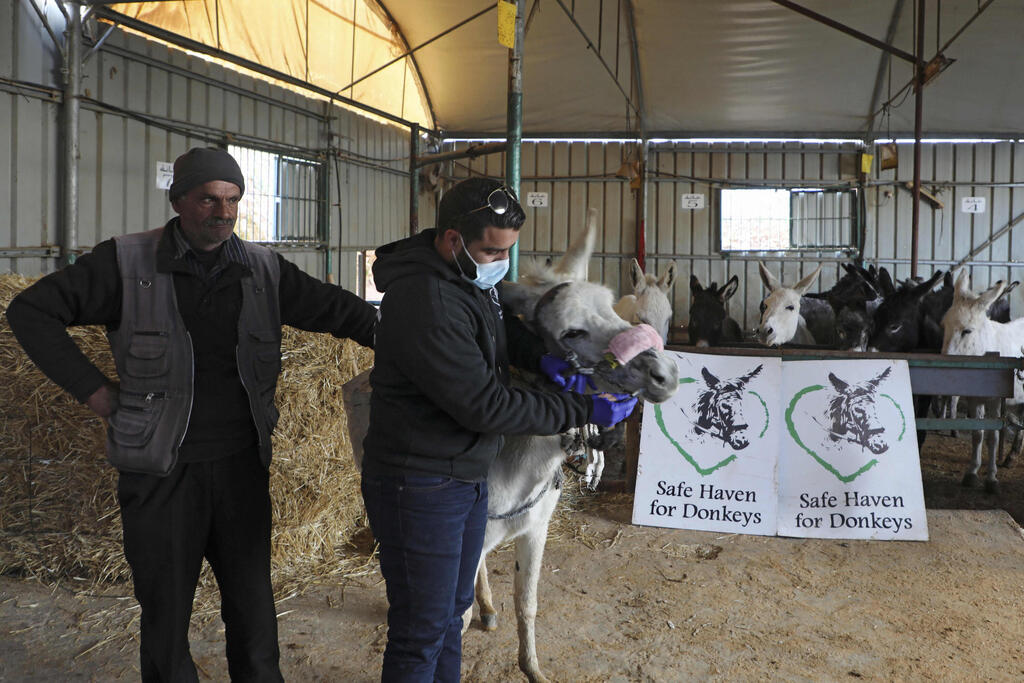Getting your Trinity Audio player ready...
Rakan Silos rises early every Thursday and heads to a West Bank donkey shelter where he helps care for animals that still play an important role in daily Palestinian life.
Donkeys that did not attract a buyer at a weekly market in Nablus are brought to the shelter in nearby Rujayb, where Silos, a veterinarian, examines them "completely and free of charge".
3 View gallery


A man leads a donkey at the Safe Haven for Donkeys sanctuary in the town of Rujayb, east of the West Bank city of Nablus
(Photo: AFP)
The shelter is run by the British charity Safe Haven For Donkeys, established in 2000 to care for working donkeys in Israel and the Palestinian territories.
Donkeys "work so hard for so little," but are often plagued by easily treatable conditions like overgrown hooves and bad teeth, the charity says.
Some Palestinians still rely on donkeys for transport and in agricultural work.
Silos, who trained at Al-Najah University in the West Bank, said donkeys in Nablus are brushed and coddled, the way some in other cultures might treat a cherished horse.
On Thursdays, market day in Nablus, fully grown donkeys are popular sellers, but younger ones often go unsold and abandoned because buyers want animals at full strength rather than one that will take time and money to raise.
"We take care of them until they are adults," said Wael Salama, who also works at the shelter.
He explained that adoption is free but on the conditions that the donkey not be sold.
The refuge, the only one in the West Bank, has capacity to care for up to 200 donkeys, but also offers free treatment for farmers who bring their donkeys to the site.



